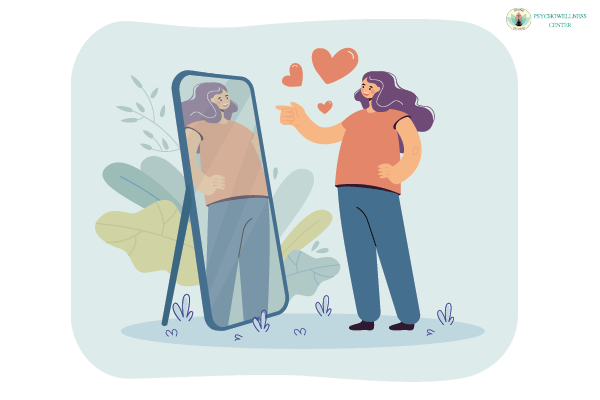Stages of a Borderline Personality Disorder (BPD) Relationship

For those who have borderline personality disorder (BPD), relationships can be cyclical, passionate, and conflict-ridden. BPD sufferers frequently have intense abandonment fears, but they can also develop phobias of intimacy and proximity. As a result, there is a push-pull between wanting others to pay attention and distancing from them.
A recurrent, continuous sequence of highs and lows in a relationship with a person who has a borderline personality disorder is referred to as a BPD relationship cycle. First of all, everything is positive, comforting, and safe; they may regard you as their favorite person. Chaos, rising negative emotions, and severe fury can all happen in the blink of an eye.
Having a sexual or platonic interaction with someone who has been diagnosed with BPD would almost always result in this kind of cycle, which can be shocking.
BPD cycles in romantic relationships sometimes feel dysfunctional due to the possibility of confrontation. It's crucial to remember that individuals with BPD can also be loving and sympathetic. They have admirable traits, but they also struggle with strong insecurities and worries, which can be challenging to deal with, especially in first-date situations. Seeking online consultation with the "best clinical psychologist" can help you in understanding borderline personality disorder issues in relationships.
People with BPD frequently feel intense anxiety about their spouse leaving them, which makes them susceptible to interpreting unconnected cues as "evidence" that their partner has lost interest. Typically, when this occurs, they withdraw right away or even end the relationship themselves, beginning a back-and-forth cycle that can turn obsessive.
With a lot of patience and effort spent learning about their triggers and BPD cycles in general, it is possible to have a long and happy relationship with a partner who has BPD.
The length of a BPD cycle in a romantic relationship can vary greatly since it relies on a wide range of factors, including the severity of BPD symptoms, degree of functioning, and level of insight of the BPD individual, among many others. BPD cycles, on the other hand, typically cease as swiftly as they began. If a relationship exhibits this pattern, it may continue indefinitely with steady intervals in between or it may end in a permanent breakup.
A borderline personality disorder relationship cycle can typically be broken down into six stages of development. The six phases of a relationship with borderline personality disorder are as follows:
1. Events Happen Quickly
A new relationship starts, and while it seems promising, it's frequently seen as progressing swiftly as well. But it appears that both parties share a desire to create a future together. Based on a few dates, one partner—typically the one with BPD—imagines the relationship to be wonderful. They might start to become fixated on the connection with this individual.
2. Partner with BPD becomes more sensitive
As their partner develops BPD, the BPD partner becomes more and more sensitive to everything they say or do. Negative impressions lead to concerns with abandonment and low self-worth. The BPD partner starts to convince themselves that their partner doesn't care about them.
3. BPD partner manipulates for affection
The BPD partner creates an environment in the relationship that forces the other person to show their love. By encouraging or coercing the other person to display affection, they hope to feel worthy and end uneasiness.
4. BPD Partner Becomes Inconsistent
Friction and disagreement result from instability and inconsistent behavior. There could be more problems, which would make the same fear return stronger. Although the spouse without BPD may seem content and contented at this point, it is doubtful that their needs will be addressed. The wedge gets widened as a result.
5. Non-BPD Partner Leaves
At this stage, the non-BPD partner typically ends the union. While the partner without BPD is emotionally unresponsive, the BPD partner could make an effort to justify what happened.
6. Strong Mood Swings
The spouse with BPD could feel down and furious and start to have wild mood swings. They subscribe to their negative inner dialogue, which tells them they are worthless. People who experience acute emotional instability may act irrationally in ways that put their lives in danger or even consider suicide.
Treatment of BPD & Relationship
a. Online Psychotherapy:
For those who have BPD or care about someone who has it, therapy, such as cognitive behavioral therapy (CBT) or dialectical behavior therapy (DBT), can be very helpful, seek therapies by the "Best therapist in India". DBT is a well-liked method of treating BPD. This method makes it easier to pinpoint particular emotional problems and consider them from many angles. Seek consultation with top psychologists for psychotherapy like CBT & DBT.
b. Medication
Seek consultation and treatment with the "Best psychiatrist in India", for borderline personality disorder, together with counseling, can support people when symptoms worsen.
Seek consultation with the best couple counselor in India, BPD relationship cycles can be debilitating and challenging to control. Your lover could appear to be distant from you at times. Sometimes it may seem impossible to communicate with them. Although maintaining a BPD relationship can be challenging, the cycle can be interrupted with the correct tools and a therapist's assistance.
If you would like to learn more about
Borderline personality disorder & relationships, seeking consultation for personality
challenges with the "Best Clinical Psychologists" will help you
to understand your emotions, thoughts, and behaviors and enable you to
better understand your emotional trauma, depression, and anxiety, stress, and
healthy behavioral skills. You can also meet in the clinic with the "Best clinical psychologists & parenting coaches" at Psychowellness Center, a multi-location clinic at Janakpuri, Dwarka,
Vasant Vihar, Gurgaon, NOIDA, Faridabad, and Delhi NCR.
#psychologistdwarka, #lifecoach, #psychologistdelhi #psychologist #counselorsouthdelhi #alcoholabuse, #psychologist #drsuri #compassion, #therapy #BPD #therapy #relationship #cognitivedisonance
Contributed By:- Dr (Prof) R K Suri Clinical Psychologist & Life Coach & Ms Aditi Bhardwaj
-01.svg)
.png)


SHARE